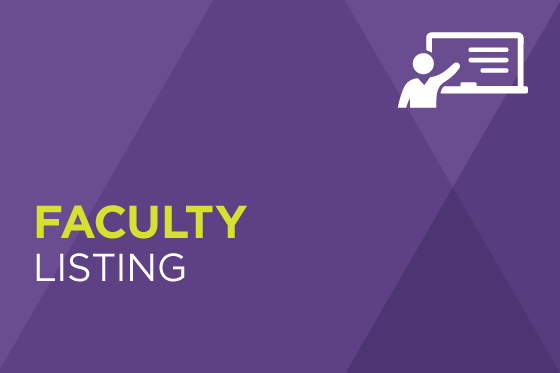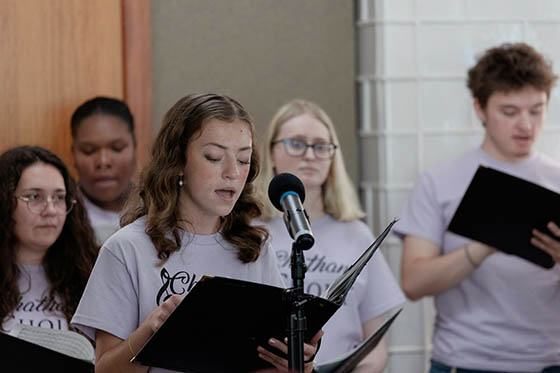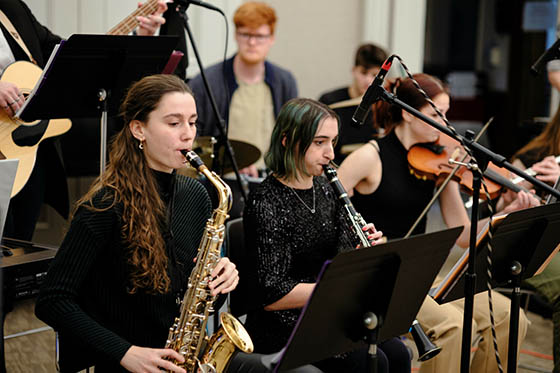Have questions? We make it easy to get in touch:
Or, answer a few questions and we will be glad to help.
Loading...
Music Technology Overview
The music industry is changing, and Chatham’s music technology program sets you up for success through allowing mastery of industry-leading technologies for editing and sequencing, putting on the final touches—taking a piece of music all the way from recording through to producing a finished product. Courses in music theory and web design round out your education. And at Chatham, you’ll receive the oral and written communication skills, as well as the critical analytical thinking skills, that set you up for a wide range of career possibilities.
Chatham's music technology major prepares students for a range of career paths because music study teaches students readily transferable skills such as focus, perseverance, and entrepreneurial thinking, and specific technology courses add an extra layer to this preparation by providing students that are passionate about music with in-depth work in related areas that can even more directly lead to careers in and around music.
—MICHAEL BOYD, Associate Professor of Music
Build A Custom Education
Students often combine the music technology major with another academic area of interest to create a custom education with a minor or certificate. Recent combinations include music and English, music and psychology, music and communications, and music and mathematics.
Explore Undergraduate Degrees : Checkerboard 1 - Build A Custom Education
Courses & Curriculum
Music technology students study music theory, ear training, music history, and performance or composition, as well as basic sound recording and audio production, and various computer music applications, including Ableton Live. The major also includes coursework in video production and web design. Click the button below to explore sample courses and curriculum.
Explore Music Technology Curriculum : Checkerboard 2 - Courses & Curriculum
New Music Technology Lab
The new music technology lab boasts 14 robust workstations fully grounded in digital technologies including Ableton Live, Reaper, and Finale. Students will become well-versed in these major computer-based technologies, so that they can transfer those skills onto any platform they’re working on.
Capstone Seminar
All students complete a capstone seminar, channeling the knowledge they’ve accumulated into a discipline-specific project under close faculty guidance. Chatham is one of the few universities across the country that offers such an independent and student-driven program.
Program Faculty
Chatham's music faculty, all of whom are professional musicians with strong artistic achievements, work closely with all students and are strongly committed to the highest standards in teaching. Click the button below to meet our faculty members.
Meet the Faculty : Checkerboard 5 - Program Faculty
Internship Opportunities
Music students have had internships at institutions including Pittsburgh Symphony Orchestra, Pittsburgh Festival Opera, Pittsburgh Chamber Music Society, Pittsburgh Opera, Pittsburgh Ballet Theater, Pittsburgh Concert Society, the Carnegie Museum of Art, Pittsburgh Center for the Arts, Women in Film and Media, The Andy Warhol Museum, Pittsburgh Film Office, Phipps Conservatory, and Pittsburgh New Music Ensemble.
Career Opportunities
Graduates might work anywhere there’s sound production and sound editing, as sound engineers or managers, audio technicians, music producers, recording specialists, and also in radio or classroom technology. Graduate study in music technology is also a possibility.
Music Business
The music business major is an interdisciplinary program, combining courses from music and business to set students with a passion for music apart in the business world. This major is designed to prepare you for leadership roles through expertise in strategic planning, management, marketing and artistic planning.
Explore Music Business : Checkerboard 8 - Music Business
Chatham Choir
The Chatham Choir, which sponsors the all-campus winter celebration and the annual Cabaret Benefit, can be heard at the opening and closing convocations, the spring concert, and the choir tour. The choir has performed in New York City, Baltimore, Washington D.C., and West Virginia, while select members have performed with Marvin Hamlisch and the Pittsburgh Symphony Pop’s All-Star College Chorus.
Instrumental Ensembles
Chatham's instrumental band program includes a jazz ensemble, athletic pep band, and smaller chamber ensembles. In addition, Chatham students can audition for and perform with large instrumental ensembles off-campus for credit, such as the University of Pittsburgh Symphony Orchestra and Marching Band. Details about auditions are distributed before the start of the fall term.
View Clubs & Organizations : Checkerboard 10 - Instrumental Ensembles










